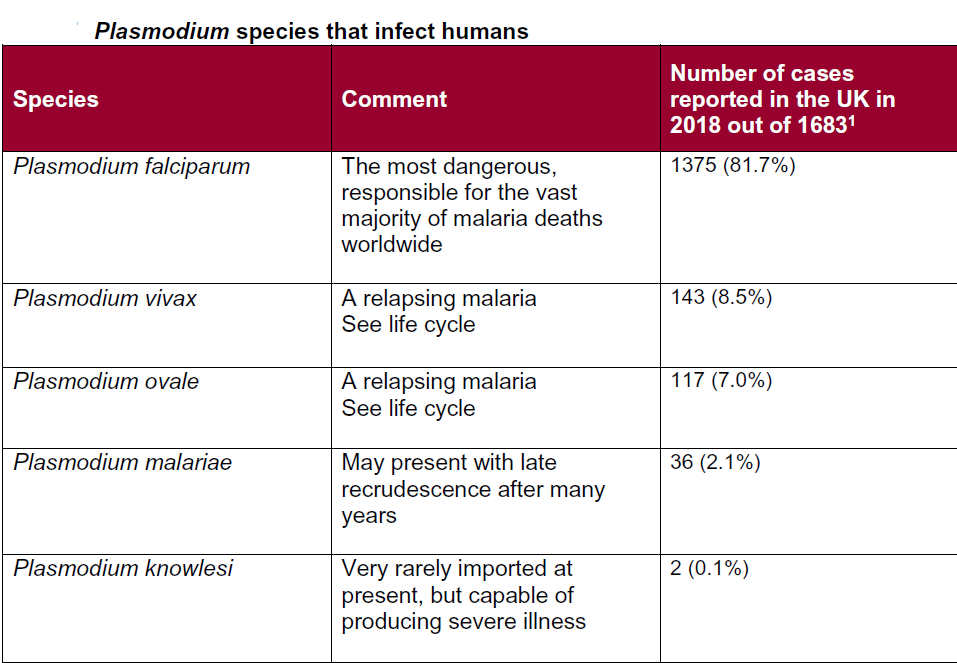Plasmodium knowlesi
P. knowlesi
Practitioners should be aware of the recognition of P. knowlesi as the fifth malaria parasite of humans.
It is a parasite of macaques and a zoonosis in humans in the Asia-Pacific region.
As its asexual cycle takes only 24 hours, it is possible for its parasitaemia to rise more rapidly than with the other malaria species.
A further danger is its close morphological resemblance to P. malariae which is a much less severe infection
- therefore, P. knowlesi should be urgently considered in any patient with malaria from the Asia-Pacific region with what appears to be P. malariae
- whilst P. knowlesi is a zoonosis and thus not amenable to control in the same way as those parasites which infect humans alone, prevention of human infection still relies on bite prevention, awareness of risk and chemoprophylaxis. P. knowlesi is sensitive to chloroquine

Reference:
- Public Health England. Guidelines for malaria prevention in travellers from the UK 2019
Related pages
Create an account to add page annotations
Annotations allow you to add information to this page that would be handy to have on hand during a consultation. E.g. a website or number. This information will always show when you visit this page.